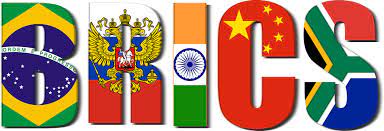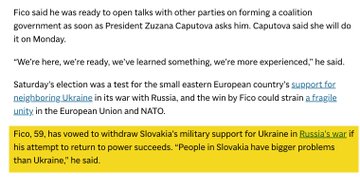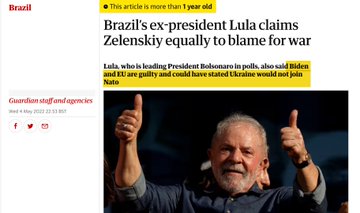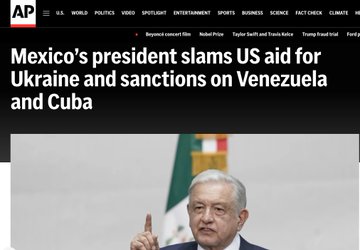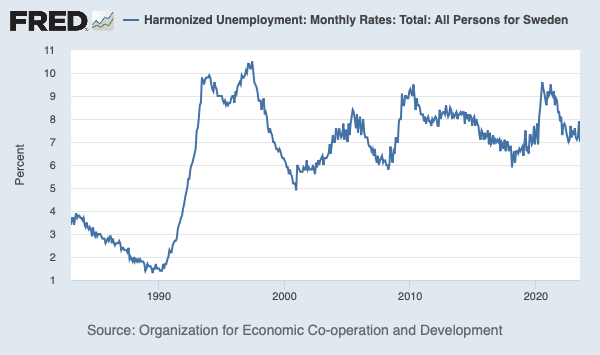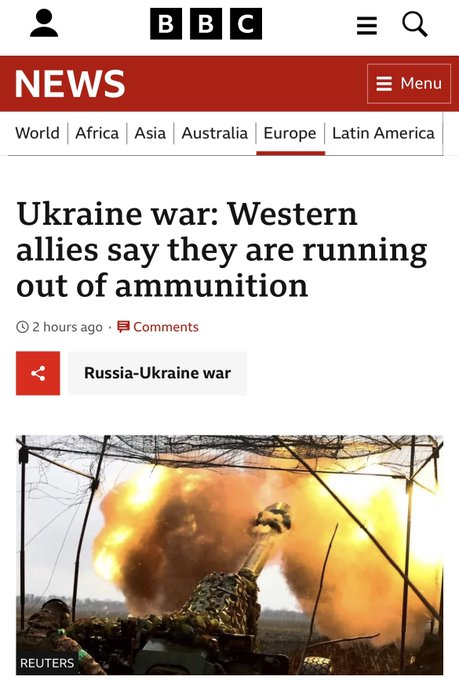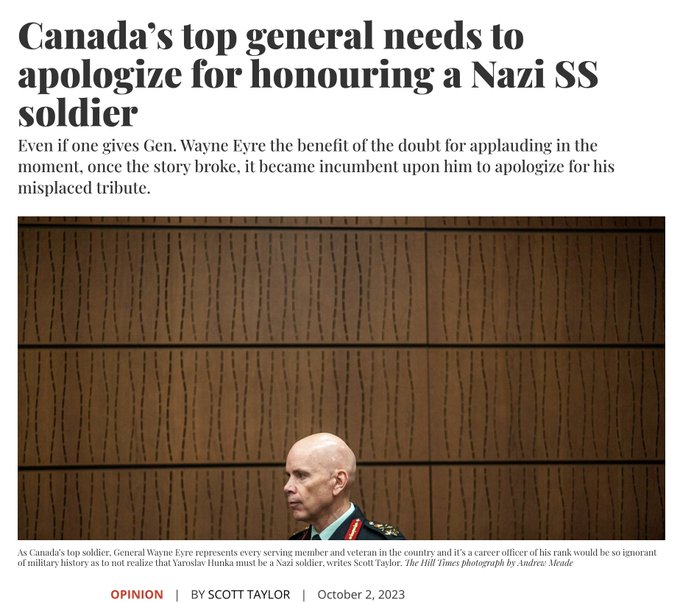BRICS
Learn #MMT
Warren Mosler
(http://www.collectedworksofwarrenmosler.com/)
Randall Wray
Randall Wray: Dirua hasiberrientzat
Randall Wray: Egin al dezakegu diruak guretzat lan egin dezan?
Randall Wray:
Jadanik aipatuak:
Randall Wray: dirua hasiberrientzat (elkarrizketa)
“Whaever is doable is financially affordable”, alegia, “Egingarria den edozer eskuragarria da finantzen aldetik.”
Randall Wray: nola MTM-k mundua salba dezakeen (elkarrizketa)
“Whar matters is resoursez, not money”, alegia, “Axola duena baliabideak dira, ez dirua.”
Hona hemen informazio pixka bat gehiago:
a) Randall Wray: Nola MTM-k mundua salbatu dezakeen
b) Randall Wray: MTM hasiberrientzat. Politikari baten gida
Segida MTMz:
Warren Mosler, 1996
Comments on the Current U.S. Budget Debate
(https://www.epicoalition.org/docs/comm.html)
The assumptions underlying the current budget debate are erroneous….
It is only after the deficit begins to expand again that the economy recovers. The historical correlation is 100%….
Contrary to general perception, fiat money is driven by the fact that taxpayers need the government’s money to pay their taxes. … so it can obtain the real goods and services it desires via the spending of its currency.
…. Treasury spending is a reserve add. Selling securities, by the Fed or Treasury, is simply a reserve drain, a monetary operation. This underlies the empirical evidence that nations can run any debt ratios they want, in their own fiat currencies, and still “fund the debt.”
How large a deficit is prudent? …., the government could offer a job to anyone who wanted one, at some minimum rate of pay deemed appropriate, and let the deficit float. This would end unemployment and unemployment compensation, eliminate the need for minimum wage laws, and promote price stability,…
The Federal debt is all the money spent but not taxed. …
The current budget debate is based on erroneous assumptions. Washington does not understand fiat money. Until it does, efforts to reduce the deficit will continue, and the economy will continue to underperform.
oooooo
Randall Wray (segida)
Randall Wray: Diruak guretzat funtziona dezan eginez (3)
Gehigarriak:
Randall Wray: Diruak guretzat funtziona dezan eginez (1)
Randall Wray: Diruak guretzat funtziona dezan eginez (2)
Defizitak
a) Defizitak askatuko zaitu
b) Ellis Winningham@elliswinningham
The presence of a central government budget deficit, in and of itself, is not a problem.
The actual problem is always who and what benefits from the budget deficit.
ooooo
NATO
This video compilation leaves no doubt on what were the root-causes of Ukrainian crisis and how the West was (and is) continuously lying about it
In today’s “Unprovoked” series episode: “IT’S NOT ABOUT NATO”
Bideoa: https://twitter.com/i/status/1709221838306337150
Segida:
neo-Nazis visit the Waffen-SS Galicia Division monument in Oakville: “Yaroslav Hunka is a hero… For the first time in decades at least, someone received a standing ovation in Canadian Parliament who truly deserved it. A Nationalist veteran who fought the forces of the left.”
Aipamena
NAFO is PEPE 2.0@lingerence
urr. 3
Remember that “denazification never” graffiti from april (pic 1) on Toronto’s Don Valley Parkway? “Tout va bien.” twitter.com/FightExtremism…
oooooo
Eisenhower warned America, do not allow the military–industrial complex to hijack the executive branch of govt, or liberty and democracy will be in grave danger. Milley is a prime example of exactly who he was warning the country about.
oooooo
Hungary is a sovereign country. We will not become a migrant ghetto and we will not give up our right to have our own foreign and economic policy. #ThisIsTheWay
Bideoa, hemen: https://twitter.com/i/status/1709287708231602335
oooooo
Russia in South Africa @EmbassyofRussia
FM Sergey #Lavrov:
#BRICS is a group of countries that growing stronger and expanding (and will continue to do so) not against anyone but exclusively in the interests of its member states.
oooooo
David Roth-Lindberg@RothLindberg
No one listened
In 1995, 18 retired US officers signed a letter to stop NATO expansion:
1/2: “We are concerned by the potential consequences of the administration’s policy of promising to extend NATO membership to the Czech Republic, Hungary, and Poland. In our view, ..
oooooo
David Roth-Lindberg@RothLindberg
erabiltzaileari erantzuten
2/2 ...this policy risks endangering the long-term viability of NATO.”
R.T. Davies, fmr Ambassador to Poland replied, citing T. Sorensen, adviser to JFK:
“It is hard to imagine a more provocative decision taken with less consultation and consideration for the consequences.”
oooooo
X owner @elonmusk is mocking Ukrainian Pres Zelensky for ‘going five minutes without asking for a billion dollars’.
Aipamena
Elon Musk @elonmusk
@elonmusk
urr. 2
The populist leader who won in Slovakia on a platform of ending aid to Ukraine has long been regarded as leftist, as has his party (see AP below). There is significant left-wing opposition to supporting the war in almost every country: except the US.
https://apnews.com/article/slovakia-parliamentary-election-c417efef2f33d38086d7229ddc3e24c0
oooooo
Anyone condemning neoliberalism should get behind this policy agenda. It is the only economic framework that tackles precarity: the lifeblood of the neoliberal economy
Aipamena
Harvey J Kaye@harveyjkaye
ira. 30
We Need an Economic Bill of Rights to Save American Democracy by Harvey J Kaye and Alan Minsky via Common Dreams https://commondreams.org/opinion/econom
oooooo
Since the Swedish fiscal framework was phased in in the 1990s, the unemployment rate never came back down. It has been a complete and utter policy disaster.
Russia in South Africa @EmbassyofRussia
political commentator @TuckerCarlson on Pres Zelensky:
Some uppity foreigner in a t-shirt demanding money for his ‘critical economic needs.’ We have critical economic needs too, buddy. Who are you, troll? Go away. What? Since when does that guy have a claim on our treasury?
Bideoa, hemen: https://twitter.com/i/status/1709133370498650514
oooooo
He says if Russia loses the whole world loses, he speaks to a greater geopolitical picture
should Russia lose that many are not aware of. As of right now there are only two countries capable of standing between the west led by the US and absolute world domination, Russia and and China. It is then no surprise that the number one and two enimies we are always told to hate are… you guessed it, Russia and China.
Every country that pledges allegiance to America and Britain becomes apart of the western beast that has common traits, it’s plain to see. Lgbtq, satanic worship, removal of God, pedophilia is promoted, mass migration, destruction of culture, crime, drugs, mental health crisis, economic failure and promotion of government state as the Supreme authority, degeneracy, destruction of family and finally above all else to do the absolute bidding of the British and Americans.
If Russia should fall, China is next and should China also fall the world will become one massive American, British, western state economically, culturally and morally. Russia is truly the only country whom can oppose the west economically but especially militarily and this is why they want Russia destroyed, make no mistake. I’ve just revealed to you the true reason for the wars and Russian hate, believe it or don’t but this is fact.
#UkraineRussianWar #ukraine #russia #Zelensky #putin #nato #BRICS #china #india #africa #Trump #biden #Pandemic #Covid #EU
Bideoa, temen: https://twitter.com/i/status/1709313022726942988
oooooo
Paulo was the star of this BRICS panel yesterday. Must Read.
Aipamena
Valdai Discussion Club@valdaitweets
urr. 3
#BRICS may be able to take the decision to create a currency during the Summit in Russia next year, writes Brazilian economist Paulo Nogueira Batista Jr. @paulonbjr.
#VALDAI2023
oooooo
BRICS Financial and Monetary Initiatives – the New Development Bank, the Contingent Reserve Arrangement, and a Possible New Currency
03.10.2023
© Press Service of the Russian Foreign Ministry
At the 20th Annual Meeting of the Valdai Discussion Club our session is called “A World Beyond Hegemony: BRICS as a Prototype of a New International Architecture”. The theme is vast and ambitious. Ambition is appropriate. Without ambition, nothing much is achieved. The BRICS are undoubtedly a major force in the world and have been so since the beginning, in 2008. We can indeed be a crucial factor in the consolidation of a post-Western and multipolar planet.
This is what is expected of our countries. One can ask, however, whether the BRICS have fully lived up to this kind of expectation. How have we fared since we first started working together in 2008, at Russia’s initiative? What can we achieve going forward? In trying to answer the first question I will be frank and sometimes even a bit harsh. Please do not see my words as arrogant or pretentious. They will be the expression of an expert opinion, fallible as all opinions. I hope my remarks will not be completely off the mark. Is it not true that self-criticism, though painful, may be beneficial in the end?
I will speak not as an academic researcher but as a practitioner, having been involved in the BRICS process since the beginning in 2008, from Washington D.C, and up to 2017, when I left the post of Vice President of the BRICS bank in Shanghai.
Beyond speeches, declarations, and communiqués, we have achieved so far two practical and potentially very important things: 1) a monetary fund of the BRICS, named the Contingent Reserve Arrangement – the CRA; and, more significantly, 2) a multilateral development bank, called the New Development Bank (NDB), better known as the BRICS bank, headquartered in Shanghai. This paper will cover briefly these two mechanisms and then move to discuss a possible future initiative – a common currency of the BRICS.
The two existing BRICS financing mechanisms were established in mid-2015, more than eight years ago. Let me assure you that when we started out with the CRA and the NDB, there existed considerable concern with what the BRICS were doing in this area in Washington, DC., in the IMF and in the World Bank. I can testify to that because I lived there at the time, as Executive Director for Brazil and other countries in the Board of the IMF.
As time went by, however, people in Washington relaxed, sensing perhaps that we were going nowhere with the CRA and the NDB. Indeed, progress had been slow. Why? It is a long story that will be addressed telegraphically here. I wrote a book about the negotiations that led to the NDB and CRA, as well as the first five years of these two financing mechanisms. [The BRICS and the financing mechanisms they created: progress and shortcomings, London: Anthem Press, 2022.]
What happened in the subsequent three or so years, from mid-2020 to now, was not sufficient to overcome the shortcomings depicted in the book. A brief synthesis will be attempted here, starting with the CRA.
The BRICS Contingent Reserve Arrangement
The CRA has been frozen by our five central banks. It remains small; it only has five members, and its work is hampered by numerous restrictions and safeguards. The surveillance unit we foresaw has not been established, and no balance of payments support operations have been carried out, only test runs. Now, if the BRICS are serious about offering an alternative to the Western-dominated IMF, the CRA must be expanded in total size of resources, new countries must be allowed to join, its flexibility must be increased, a sound surveillance unit (similar to the one the Chiang Mai Initiative has in Singapore) needs to be established as soon as possible, and the link to the IMF needs to be gradually relaxed.
All this is easier said than done. Having participated intensely in the two years of negotiations that led to the CRA, I can tell you that the main reason for lack of progress is the fierce resistance of our central banks, with the exception of the Chinese central bank. The Brazilian central bank is probably the worst.
The South African central bank was not far behind in making the CRA inflexible – very strange given that South Africa is the only BRICS country that could conceivably need balance of payments support in the foreseeable future. What about Russia? Can the Russian central bank be made to understand that the CRA is now potentially even more important than when we conceived it, given the changes in the geopolitical context?
Don´t tell me, by the way, that the CRA suffers from the same problems of all other monetary funds created as alternative or complementary to the IMF. For example, the small FLAR – Latin American Reserve Fund and the Arab Monetary Fund (AMF) have more members than the CRA and are active institutions that have carried out many operations for balance of payment support. Meanwhile, our CRA is dormant.
The New Development Bank
What I said about the CRA applies to some extent to the NDB. The Bank has achieved many things but has yet to make a difference. One reason being, frankly, the type of people we have sent to Shanghai since 2015 as presidents and vice presidents of the institution. Brazil, for instance, during the Bolsonaro administration, sent a weak person to become president from mid-2020 to early 2023 – technically weak, Western-oriented, no leadership, and without a clue as to how to conduct a geopolitical initiative. Russia is also no exception, unfortunately – the Russian NDB vice president is remarkably unfit for the job. Weak management has often led to the poor hiring of staff.
These internal problems of the Bank were compounded by broader political hurdles, including tense relations between China and India, the sanctions imposed on Russia since 2014 and, especially, since 2022, as well as the political crises in Brazil and South Africa. These macropolitical issues inside and among the founding members have also hurt the NDB.
Brazil has now sent Dilma Rousseff, a former president of Brazil, to become president of the institution. She has, however, less than two years to turn the Bank around. It’s not enough time. Thus, the future of the NDB lies largely in the hands of Russia. This is because Russia will have the opportunity to appoint a new president for 5 years, starting in July 2025. I trust Russia will, this time, be able to send a strong person for the job, someone of high political standing, technically sound, and with a clear view of the geopolitical purposes that led the BRICS to create the NDB. It is an expensive initiative, by the way, and requires careful handling by our countries. Suffice to say that the Bank’s paid-in capital from the founding members reached USD 10 billion, making it one of the largest multilateral development banks in the world from this angle.
Why can it be said that the NDB has been a disappointment so far? Here are some of the reasons why. Disbursements have been strikingly slow, projects are approved, but are not transformed into contracts. When contracts are signed, actual project implementation is slow. Results on the ground are meagre. Operations – funding and lending – are done mainly in US dollars, the currency which also serves as the Bank’s unit of account. How can we, as BRICS, credibly talk about de-dollarisation if our main financial initiative remains predominantly dollarised? Don´t tell me that operations in national currencies cannot be done in our countries. The Interamerican Development Bank, the IDB, for instance, has had for many years considerable experience operating using Brazilian currency. Why the NDB has not tapped into that experience beats me. One can expect Dilma Rousseff to start solving these problems.
The NDB is also far from being the global bank we envisaged at the time of its creation. Only three new countries have joined the Bank in its more than eight years of existence – compare that with the Asian Infrastructure Investment Bank, the AIIB, led by China, established more or less at the same time as the NDB, which has had more than 100 member countries for some time. Moreover, governance in the NDB is poor, and rules are not respected by management. The Board is ineffective. Transparency is not observed; the Bank is opaque, little information about loans and projects is made public. HR is weak. Many important positions in the Bank remain unfilled, and discouragement among employees is rife, leading to staff departures, and thus the total number of staff is falling.
Despite all that, the NDB remains an institution with great potential. It has a large capital base and support from five of the most important countries in the world. Support from the host city and host country has never failed. The Articles of Agreement were carefully negotiated and are mostly fit for purpose. Therefore, the NDB can still become a Bank of developing countries, by developing countries and for developing countries, to paraphrase Abraham Lincoln.
The NDB can have an important role, alongside the CRA, in an initiative that I now turn to – the possible creation of a common currency for the BRICS.
A common currency for the BRICS?
This idea originated in Russia. President Putin himself, as well as President Lula, have often spoken of de-dollarisation and of the possible creation of a common or reference currency for the BRICS. Since at least 2022, Russian experts have been working on the topic. The reason Russia is the originator of the idea is quite clear. Russia is the most important case of the weaponisation of the US dollar, the euro and of the Western financial system. The equivalent of about $300 billion USD, roughly half of the country´s official international reserves, were simply frozen – a unilateral moratorium that is among the largest such events in history. If this can happen, anything can happen.
There are controversies among economists about whether the role of international reserve currency is an “exorbitant privilege” or an “exorbitant burden” for the issuing country. We need not go into that. The United States has always understood that money is power and holds on tightly to the status of the dollar as the hegemonic currency. At the same time, paradoxically, it undermines the dollar by resorting to the currency and the Western financial system to sanction countries that are hostile to the US or seen as such. Russia is the largest and most recent case in a long list of victims.
Since the US dollar (and the euro) can no longer be fully trusted, it is natural that de-dollarisation should proceed, probably in a gradual manner. A BRICS currency could be an important step in that direction.
Aleksei Mozhin, the Russian Executive Director at the IMF, a former colleague, and close friend of mine, hit upon a curious coincidence – the five currencies of our countries all begin with the letter R – real, ruble, rupiah, renminbi, and rand. He proposed that the currency be called the R5. Sadly, only two of the currencies of the six countries invited by the BRICS in their Johannesburg Summit to become new members of the group as of January 2024 also begin with the letter R (the currencies of Saudi Arabia and Iran) – something that partly spoils Mozhin’s proposed name for the currency. Perhaps it could be renamed R5+ or R11, since the BRICS political formation will now perhaps be called BRICS+ or BRICS11.
But let us leave nomenclature aside. Russian experts have proposed that the BRICS currency start as a unit of account, taking the form of a basket of the currencies of the participating countries, with weights reflecting relative economic size. This first step is relatively simple. The R5+ could be used, to take one example, as a unit of account for the CRA and the NDB.
Both use the US dollar. If we are serious about de-dollarisation this may need to change.
Discussions among Russian experts did not, in so far as I am aware, go much further than this, except for problematic references to backing the new currency with gold or a basket of commodities. How could we proceed? I presented a paper at a recent seminar in Johannesburg, ahead of the BRICS leaders’ 2023 summit, in which I sketched out a possible road map [A BRICS currency? Paper that served as the basis for speech given at the BRICS Seminar on Governance & Cultural Exchange Forum 2023, in Johannesburg, South Africa, August 19, 2023].
There is no need to repeat the road map sketched out in the previous paper. It is enough to quickly recapitulate a few basic points: 1) The R5 or R5+ need not be a physical currency, it can be digital. 2) The new currency would not replace the currencies of the BRICS countries but would circulate alongside them, being used mainly for international transactions. 3) The BRICS central banks would continue to exist as now, fulfilling all the functions of a monetary authority. 4) An Issuing Bank would need to be created, in charge of issuing the new currency and putting it into circulation, in accordance with predetermined and carefully designed rules. This would help create confidence in the R5+.
Could the currency be backed in some way? Not by gold or other commodities, given the instability of their prices. One approach would be to back the R5+ by bonds guaranteed by the BRICS countries. The Issuing Bank would also be in charge of issuing the guaranteed R5+ bonds, at different maturities and interest rates. The currency could be freely convertible into these bonds. This arrangement would be a financial expression of the guarantee that the BRICS would give to the new currency.
The CRA and NDB could play an important role in putting the currency into circulation. Not only could the R5+ be their unit of account, but loans by the NDB and currency swaps by the CRA could be denominated and paid in R5+. The NDB would also issue bonds in R5+.
The Johannesburg Summit and possible next steps
To conclude, let me mention possible next steps for the BRICS in this area. A new currency is a complex issue, political and technical at the same time, and needs much further discussion. Some progress was made in the Johannesburg Summit. The Leaders’ Declaration addressed the matter of de-dollarisation and new payment instruments in a few significant paragraphs. They stressed, for instance, the importance of encouraging the use of national currencies in trade and financial transactions between BRICS and with other countries (paragraph 44 of the Declaration). The Leaders also tasked their Finance Ministers and/or Central Bank Governors, as appropriate, to consider the issue of local currencies, payment instruments and platforms, and report back to them by the next Summit that will be held here in Russia (paragraph 45). Furthermore, the establishment of a BRICS Think Tank Network for Finance in 2022 and its further development and practical implementation (paragraph 47) will create a channel for these monetary and financial discussions. The Declaration was not as explicit as it could have been on these issues and on a possible new currency because, so it seems, of India´s resistance, for reasons that are not entirely clear.
Be as it may, the process has been launched. In his concluding remarks in Johannesburg, President Lula stated that the leaders had “approved the creation of a working group to study the adoption of a reference currency of the BRICS”. He added that “this will increase our payment options and reduce our vulnerabilities”.
We can assume that Russia will now establish this group of experts. I will refrain from making now any considerations as to how the group could be set up. Let´s leave that to our Russian colleagues. I say only this: it would be advisable to draw lessons from the negotiation and implementation of the CRA and the NDB.
It is our good luck to have Russia presiding over the BRICS in 2024 and Brazil, in 2025 – precisely the two countries that seem to be most interested in moving towards the creation of a common or reference currency. If everything runs smoothly, the BRICS may be able to take the decision to create a currency during the Summit in Russia next year. By the Summit in Brazil, in 2025, the BRICS will perhaps be able to announce the first steps towards its establishment.
Oooooo
Another phony justification for war. China! When I’m President, we’ll try peace, diplomacy, and multilateral disarmament that will benefit the citizens of all countries. #Kennedy24
Aipamena
Glenn Greenwald @ggreenwald
@ggreenwald
urr. 2
Lindsey Graham giving another impassioned defense of the top foreign policy priority of Biden, US liberals, Raytheon and CIA. I love how – seeing support rapidly erode for Ukraine, especially among the right – they just started cynically claiming it’s necessary to fight China. twitter.com/alx/status/170…
oooooo
— GEROMAN — time will tell – —@GeromanAT
Don’t say I did not tell you…
oooooo
Dimitri Lascaris@dimitrilascaris
Canada’s military trained Neo-Nazis in the Azov battalion, and no one was held accountable. It should therefore surprise no one that Canada’s top general is refusing to apologize for celebrating a Nazi in Canada’s Parliament. #NaziGate #cdnpoli
oooooo
While Washington is busy protecting Taiwan from “evil” China, the same Taiwan is helping Chinese company Huawei to build state of the art chips…..
oooooo
The Sirius Report@thesiriusreport
Western politicians are beginning to see Ukraine as a liability for their own careers and future standing.
Problem is they have invested so much political capital in supporting the war, trying to find an exit strategy without destroying their own political futures is becoming increasingly difficult.
They expected a quick defeat of Russia, economically, financially and via the removal of Putin.
It has completely failed to materialise.
However they need an exit strategy and time is running out.
oooooo
Stephanie Kelton@StephanieKelton
Finding the Money is coming to the Boston Film Festival at 1:00 pm (ET) on Saturday, October 28. Tickets available now. I’ll be there.
globedocsfilmfestival2023.splashthat.com
oooooo
UKRAINE CLOSE TO COMPLETE DEFEAT
” Ukraine is doomed to lose a large part of its territory because it continues to blindly listen to the West in everything ,” said former US intelligence officer Scott Ritter in an interview with the YouTube channel “Midwestern Marks
“Representatives of Ukraine came to Turkey, a meeting was held where the terms of conflict resolution were agreed upon Russia proposed excellent terms to them, but NATO and the West did not allow them to accept it”
I recently moved to China. I made a video discussing what life is like, what we can learn from its economic model, and why I think many of its policies are misunderstood, as this may be the most sovereign country on Earth. Link to full video below
Bideoa: https://twitter.com/i/status/1709182375878689001
oooooo
“It was not Russia, but rather a Jewish journalist in the United States and Ivan Katchanovski, a Ukrainian Canadian professor of political science at the University of Ottawa, who exposed Hunka as a Nazi accomplice. Katchanovski, in particular, sent out photographs and translated
text that clearly identified Hunka as a member of the Waffen SS Galicia) Division, which was formed in 1943 and whose recruits took an oath of allegiance to Hitler.”
https://blogs.timesofisrael.com/canada-should-
oooooo
Nato won’t win a long war in Ukraine
(https://unherd.com/2023/10/nato-wont-win-a-long-war-in-ukraine/)
Nato won’t win a long war in Ukraine
An Afghanistan-style conflict could cripple Europe
BY Thomas Fazi
. American support is starting wane (RONALDO SCHEMIDT/AFP via Getty Images)
Thomas Fazi is an UnHerd columnist and translator. His latest book is The Covid Consensus, co-authored with Toby Green.
October 4, 2023
As grand acts of foreign diplomacy go, Volodymyr Zelenskyy’s recent trip to Washington will make the history books for all the wrong reasons. From the moment his jet touched down, the Ukrainian president was greeted with a lukewarm reception, and was even denied a
request to address a joint session of the US Congress. Then, at the weekend, the GOP-dominated Congress decided to strip any additional funding for Ukraine from a last-minute emergency spending bill aimed at avoiding a government shutdown.
It is a significant setback for Biden, who had asked Congress for an additional $20 billion for Ukraine — on top of more than $60 billion in aid already sent to the warring ally, including more than $40 billion in direct military assistance. In response, Biden sought to reassure Ukraine and Nato allies that the funding will be approved through a separate vote.
But even if that happens, the White House will still face an increasingly uphill struggle in mustering political support for its strategy of open-ended assistance to Ukraine. Not only is Trump, with his anti-war stance, continuing to rise in the polls, but even the more hawkish elements of the US and Western establishment are starting to rethink their stance on Ukraine. Indeed, it seems to finally be dawning on them that, as one leading commentator wrote in Newsweek, “there is no realistic basis to believe that Ukraine has the capacity to attain its stated strategic objective to reclaim all its territory, including Crimea”. A correspondent at The Wall Street Journal, meanwhile, recently noted that Ukraine’s goal of retaking all the territory it lost now “appears a distant prospect”.
This shift is largely a result of the failure of Ukrainian’s eagerly anticipated counteroffensive. “Ukraine has liberated less than 0.25% of the territory that Russia occupied in June,” reports The Economist. “The 1,000km front line has barely shifted.” In fact, not only does Russia now control nearly 200 square miles more territory in Ukraine compared with the start of the year, but, as The New York Times noted, in the first two weeks of the counteroffensive, “as much as 20% of the weaponry Ukraine sent to the battlefield was damaged or destroyed, according to US and European officials”. Meanwhile, everyone agrees that Ukrainian casualties have been massive — potentially in the tens of thousands, according to the BBC.
Yet perhaps the greatest tragedy of the counteroffensive is that its shortcomings were entirely predictable. As John Mearsheimer wrote: “A look at the lineup of forces on both sides and what the Ukrainian army was trying to do, coupled with an understanding of the history of conventional land war, made it clear that there was virtually no chance the attacking Ukrainian forces could defeat Russia’s defending forces and achieve their political goals.”
Does this mean that the West is finally coming round to the need for a diplomatic solution? Unfortunately not. “Asking for a ceasefire or peace talks is pointless,” according to The Economist. “Vladimir Putin shows no sign of wanting to negotiate and, even if he did, could not be trusted to stick to a deal. If Ukrainians stop fighting, they could lose their country.”
That is a questionable assertion ― Russia claims it is open to negotiations, while there is some evidence that Putin made several attempts to reach a diplomatic solution to the Ukraine crisis in the months and weeks leading up to the war, and even in the weeks following the invasion. But it is certainly true that reaching an agreement now is much trickier. This is because the derailment of peace talks in the early days in the war has allowed Russia to gain a tactical advantage, which now makes a negotiated settlement much more difficult to achieve. Even US officials now admit that the chairman of the US Joint Chiefs of Staff, Gen. Mark Milley, “had a point” when he called for Kyiv to make the most of its gains by suing for peace late last year, and that “we may have missed a window to push for earlier talks”.
However, this is no excuse for the West to not even consider sitting down at the negotiating table. So why is there no diplomatic solution in sight? Part of the problem is that this war isn’t perceived as an existential struggle only by Ukraine, but also by Russia and the US: they both know that the outcome of this conflict will have massive geopolitical ramifications. Military defeat is therefore not an option, but neither is a settlement that may be interpreted as an admission of defeat.
And then, to make matters worse, there are those in the US establishment who want this war to continue, no matter what, because they view it as beneficial to their interests. Consider Senate Minority Leader Mitch McConnell, who recently tweeted: “Standing with our allies against Russian aggression isn’t charity. In fact — it’s a direct investment in replenishing America’s arsenal with American weapons built by American workers. Expanding our defence industrial base puts America in a stronger position to out-compete China.” Last year, he claimed that “the most basic reasons for continuing to help Ukraine degrade and defeat the Russian invaders are cold, hard, practical American interests”.
As the Democratic Senator, Richard Blumenthal, recently put it, America is therefore getting its “money’s worth” in Ukraine: “For less than 3% of our nation’s military budget, we’ve enabled Ukraine to degrade Russia’s military strength by half… All without a single American service woman or man injured or lost.” But the conflict is also serving US interest by bolstering Nato, and therefore America’s military control over Europe. Thus, in the middle of Ukraine’s bloody counteroffensive, David Ignatius had the nerve to claim in the Washington Post that “overall, this has been a triumphal summer for Nato”. The Bill Kristol-led group “Republicans for Ukraine” even released a TV ad claiming: “When America arms Ukraine, we get a lot for a little.” It was further proof that calling the conflict a proxy war is no longer just a “pro-Russian talking point”.
If, however, there is no realistic basis to believe that Ukraine has the capacity to attain its stated strategic objective of reclaiming all Russian-controlled territories, but peace (or even a ceasefire) is not an option, what options are left? Once again, the answer is provided by The Economist: “Both Ukraine and its Western supporters are coming to realise that this will be a grinding war of attrition… Instead of aiming to ‘win’ and then rebuild, the goal should be to ensure that Ukraine has the staying power to wage a long war — and can thrive despite it.”
As Nato’s chief Jens Stoltenberg recently stated: “We must prepare ourselves for a long war in Ukraine.” This now seems to be the consensus in Western establishment circles. “The US and its allies in the Group of Seven now expect the war in Ukraine may drag on for years to come and are building that possibility into their military and financial planning,” Bloomberg reported. Even America’s ultra-hawkish US Deputy Secretary of State Victoria Nuland conveyed a similar message to Kyiv, saying that the US must help Ukraine “accelerate the process of thriving in parts of Ukraine that are not occupied”, implying that the territories under Russian control would remain so for a very long time.
This means shifting from battleground operations aimed at taking back territory to measures aimed at bolstering Ukraine’s defences (to the benefit of Western arms manufacturers), coupled with increasingly brazen attacks on Russia or Russian-controlled territories, especially Crimea, which have a marginal effect on the military balance of power. Indeed, for the first time, the Biden administration is now considering sending ATACMS long-range missiles with the capability to strike deep inside Russian territory — a policy which the US has been unofficially supporting for months, and which it is now officially endorsing.
The prospect of an Afghanistan-style war of attrition is worrying for a number of reasons. Firstly, because, if Ukraine had little chance of winning a blitzkrieg-style counteroffensive, it has even less chance of winning a long-term war of attrition, given Russia’s advantage in manpower and its ability to produce more artillery and ammunitions than Ukraine and the West combined (Russia’s current ammunition production is seven times greater than that of the West). “If the war goes on for long enough with this intensity, Ukraine’s losses will become unbearable,” a senior French official told the Wall Street Journal in February.
And second, because as the conflict drags on, and potentially escalates, direct Nato involvement in the conflict — and thus the risk of an all-out war between Nato and Russia — will inevitably increase. Europeans should be especially worried by the prospect of a long war: if American military assistance starts to wane, Europe will need to carry more of the burden. Indeed, it would appear that the EU has already taken its cue from events on the other side of the Atlantic. On Monday, two days after the no-deal in the US Congress, the EU’s foreign ministers paid a surprise visit to Kyiv to express their unwavering support for Ukraine.
Whatever happens in the US, “from our side, we will continue supporting and increasing our support”, the EU’s foreign policy chief Josep Borrell said. To this end, there is even talk of allowing the European Investment Bank to start financing defence project. The fact that Europe, unlike America, has nothing to benefit, neither economically nor in security terms, from a permanent militarisation of relations with its nuclear-armed neighbour doesn’t seem to be an issue.
On the other hand, it’s hard not to conclude that this “Europeanisation” of the war — with Germany as the vassal-in-chief, as foreseen by Wolfgang Streeck — would represent a double win for America: it would allow it to disentangle itself from the conflict, politically and financially, while continuing to indirectly preside over the region, via the EU. In other words, the EU would end up fighting a proxy war on America’s behalf, almost entirely to the latter’s benefit — the ultimate act of vassalisation.
If this seems foolish, let alone dangerous, we can find some solace in the fact that reality would appear to be standing in the way of this plan. There is, after all, simply no way for the EU to plug the gap — in military, financial or political terms — if Washington scales back its support. For those of us who yearn for peace, the EU’s dysfunction might be, for once, a silver lining.
oooooo
Great post.
Aipamena
Space Commune@SpaceCommune
13 h
The Real Reason Why U2, AOC & Greta Thunberg Flipped On Anti-Nuke Advocacy And it has nothing to do with environmentalism
Nuclear power is a technology for humanity where a massive amount of energy can be created from a miniscule amount of fuel. It’s been one of the most hotly debated topics in Western politics for decades. Some of the world’s most famous celebrities and politicians have burnished their credentials as environmentalists by railing against nuclear power.
And the West coming up against harsh geopolitical realities of multipolarity may be what settles the debate once and for all.
1970s: The Precipice of Nuclear Abundance
In the 1970s, humanity stood on the precipice of permanent energy abundance and growth. Traditionally, growth had always been somewhat mitigated by the rate at which natural resources could be extracted, controlled and harnessed; but with the density and abundance of uranium around the world, nuclear energy actually held promise to unlock a revolutionary amount of rapid human prosperity. Nuclear fuel can even be created from recycling military warheads, reprocessing nuclear waste, or re-enriching depleted uranium, even further reducing the need for uranium mining.
The thought of the human population growing unfettered from previous energy constraints fueled the West’s oligarchs into spinning the anti-nuclear movement into existence. Armed with the Club of Rome’s Limits to Growth report, reinforced by the mass market success of The Population Bomb and Silent Spring, and influenced by Small is Beautiful, the anti-nuclear movement marched to retard the flourishing of humanity from threatening the established order. No amount of risk or tradeoff was too small to block a nuclear plant from being built.
The hysteria generated by the anti-nuclear movement created plausible deniability for Western hegemony; any initiative that didn’t have the right winners and losers could be blocked by pointing activists like a loaded gun at it. One of the architects of the Green New Deal was Senator Ed Markey, who spent decades blocking uranium shipments to energy-starved India’s nuclear power plants (India now partners with Rosatom to get its nuclear fuel). Robert F. Kennedy Jr. was dispatched to Cuba to prevent them from working with Rosatom to build a nuclear plant; 30 years later, the country is still crippled by blackouts and energy poverty.
Then and now, nuclear’s strength is also its biggest weakness; it’s so efficient that there isn’t enough graft and middlemen to build constituencies to protect the industry from attack. As
@Mining_Atoms often points out, the market for cow dung fuel in India is $4B while the global market for uranium is worth only $790M. $4B in cow dung pays for an extremely low standard of living for some people in India; $790M in uranium is enough to produce 5x more energy than what humanity consumes. That means that when a well-funded NGO like Greenpeace or Friends of the Earth has pushed on a nuclear plant or a uranium mine, there was more political incentive to go along with them than to stand up for nuclear energy on principle.
AOC, U2 and Greta Thunberg Once Danced on the Grave of the Nuclear Power Industry
The anti-nuclear energy movement enjoyed over 40 unchecked years of primacy. Celebrity activists like Congresswoman Alexandria Ocasio-Cortez, U2, and Greta Thunberg danced on the graves of nuclear power plants, combining well-established lies and trope with emotional appeals to burnish their credentials as strident environmentalists.
In 2019, AOC said that Indian Point Nuclear Power Plant (the safest and longest-running plant in the world) should’ve been shut down a long time ago in favor of 100% renewables:
U2 played a “Stop Sellafield” nuclear fuel processing concert in the UK in the early 1990s, while words like “Kill Baby Lies Car Future Victim Anti-Christ Frenzy Fear Decay Earth Rape” flashed rapidly behind them on a screen:
Greta Thunberg condemned nuclear as extremely dangerous, expensive, and time-consuming.
These efforts were part of a very successful larger effort to hold back the development of nuclear energy. Thanks to the political environment and trumped up narratives like the Fukushima incident (where only one person died from radiation), the global commodity price for uranium collapsed to some of its lowest-ever levels (adjusted for inflation).
According to @StatistaCharts, the global number of operating nuclear plants flatlined since 1988, while the global share of nuclear electricity production has declined from a peak of 17% in the 1990s to around 10% today.
Multipolarity Revives the Nuclear Power Industry
The growth of the BRICS+ sector of developing countries, the innovations of state-owned Chinese and Russian nuclear energy companies, the impotent underperformance of renewable energy initiatives in developed countries, and the success of China’s Belt and Road Initiative have turned the anti-nuclear industry on its head.
There are at least 57 nuclear power plants under construction worldwide; 21 in China and eight in India. At least 100 more are planned, and 300 more are proposed; with the plurality coming from China’s plans to spend $440B to build 150 new reactors by 2035. Through the Belt and Road Initiative, China may finance as many as 30 nuclear reactors in developing countries around the world by 2030. Russia may also help build as many as 33 reactors abroad via Rosatom.
The commodity price of uranium reflects this as well; the price has roared back to what it was pre-Fukushima in 2011.
Germany, which dismantled its nuclear plants and spurned Russian gas in favor of renewable energy, is being rapidly deindustrialized and destabilized because it has no reliable energy. Meanwhile, countries that build nuclear plants are increasing their industrial capabilities and citizens’ average standard of living.
Anti-nuclear advocacy no longer serves a purpose for Western oligarchs
Funding anti-nuclear advocacy is no longer a viable mechanism of control for Western oligarchs. Mastery of nuclear power has been a critical factor for the rise of the developing world, despite what Western environmental NGOs say or do.
This is why today, the activists that I mentioned earlier are reversing their previous anti-nuclear stances. Not because their concerns were addressed (the concerns were always built on lies), but political conditions have changed:
– The supremacy of the petrodollar is being challenged.
– The West has less access to Russian natural gas. – The West is hesitant to drill for natural resources.
– The West has committed to massively increasing its demand for electricity for “Net Zero” goals.
– The West has to power its data centers and AI for the Fourth Industrial Revolution.
The arguments to stop nuclear plants from being built were always fear-based; the risk of a meltdown, everyday radiation exposure, waste disposal and a non-existent link to nuclear weapons proliferation were all easily resolved on the basis of science. They were political riddles designed to trick people into not wanting abundant and reliable energy.
Recently:
– AOC said she supports nuclear energy after a trip to Fukushima
– Greta Thunberg said existing nuclear plants should be kept open
– U2 said nuclear energy is critical for “Net Zero”
Remarkably, the environment is being used as their main reason for supporting nuclear energy; in the past, the environment was their reason for opposing it!
This is all to mask the real purpose of anti-nuclear advocacy: it was always about control.
The Right Reason for Supporting Nuclear Energy
Make no mistake, the cohort around AOC, U2 and Greta Thunberg are not supporting nuclear energy because they’re excited about multipolarity, dedollarization and ending global poverty; they’re supporting it because it’s the West’s last best shot at maintaining hegemony.
Not only will nuclear energy provide “energy security” for Western nations while they finance forever war in Ukraine and eventually in Taiwan; it will power the Net Zero microgrids, AI data centers and cryptocurrency microtransactions that dominate their preferred vision of the future economy.
It doesn’t have to be this way. Peaceful collaboration between the three leaders in nuclear technology, the United States, China and Russia could even unlock the potential of fusion energy, which could create even more abundance with fewer limitations. Nuclear energy’s highest and best use is to power an abundant standard of living for all people.
oooooo
BRICS Financial and Monetary Initiatives – the New Development Bank, the Contingent Reserve Arrangement, and a Possible New Currency — Valdai Club
oooooo
erabiltzaileari erantzuten
When will America and NATO realize this isn’t a joke.
Are we all willing to die for Ukraine?
It really is that simple.
oooooo
One more confirmation that Ze deliberately and knowingly promotes glorification of Nazi collaborators in Ukraine
Aipamena
Afshin Rattansi@afshinrattansi
urr. 4
A week after Zelensky/Nazi SS Hunka given ovation by Trudeau & the entire Canadian parliament, Zelensky in Ukraine is presented with the emblem of the 14th SS Grenadier Division to which Hunka belonged, that massacred thousands of Jews, Poles and dissidents during the holocaust. twitter.com/thevivafrei/st…
Going Underground@GUnderground_TV
ICYMI: Chrystia Freeland and Hillary Clinton explain to the world that hundreds of thousands of Ukrainian soldiers need to keep dying…to send a message to China.
US military bases surrounding China: 313-400 Chinese bases in the Western hemisphere: 0
Ukrainians are dying to send a message to China…to counter an imaginary Chinese threat…while China itself is threatened by the most violent military power in the world today…
Bideoa, hemen: https://twitter.com/i/status/1709909387496534200
oooooo
The @UkrCanCongress has stayed quiet about the Yaroslav Hunka ‘NaziGate’ scandal, which it might have created. Yesterday its Toronto branch published this Remembrance Day video feat. the flags of NATO and the ‘1st Division of Nat’l Army’ AKA the Nazi Waffen-SS Galicia Division
Bideoa, hemen: https://twitter.com/i/status/1710024211975000361
oooooo
Going Underground@GUnderground_TV
ICYMI: Chrystia Freeland and Hillary Clinton explain to the world that hundreds of thousands of Ukrainian soldiers need to keep dying…to send a message to China.
US military bases surrounding China: 313-400
Chinese bases in the Western hemisphere: 0
Ukrainians are dying to send a message to China…to counter an imaginary Chinese threat…while China itself is threatened by the most violent military power in the world today…
Bideoa, hemen: https://twitter.com/i/status/1709909387496534200
oooooo
Mexico’s President AMLO called on the US to lift its illegal sanctions on Venezuela and Cuba
He noted that the US blockades cause more people to leave the country, fueling the migration crisis – which the US created, but which US politicians then exploit
oooooo
SCOTT RITTER, ANDREI MARTYANOV, AND GARLAND NIXON JOIN ON NATO, UKRAINE’S TIME RUNS OUT – YouTube
SCOTT RITTER, ANDREI MARTYANOV, AND GARLAND NIXON JOIN ON NATO,…
In this special roundtable, Scott Ritter Andrei Martyanov and Garland Nixon join the program to discuss the ongoing developments of the Ukraine proxy war, wh…
Bideoa: https://youtu.be/h3noH7gGWUo
oooooo
Putin is 100% correct. How could Trudeau & every member of the Canadian Parliament applaud someone who “fought against Russia” in WW2?
Don’t they know who the Red Army was fighting in WW2?
Are they that ignorant of history? Or are they pro-Nazi villains?
Aipamena
Hassan Mafi @thatdayin1992
urr. 5
“If he doesn’t know that during the war Hitler and his henchmen fought against Russia then he’s an idiot.”
Putin reacts to Canada’s parliament Nazifest.
Bideoa, hemen: https://twitter.com/i/status/1709963795378946524
oooooo
As a US taxpayer, I resent seeing my tax dollars used to finance 800 military bases abroad, organize coups d’état, provoke wars and “humanitarian interventions” rather than endeavouring to facilitate peace.
oooooo
Scott Ritter & Diane Sare discuss Kevin McCarthy’s ouster as Speaker…
Scott Ritter & Diane Sare discuss Kevin McCarthy’s ouster as Speaker of the House#scottritter #kevinmccarthy #speaker #houseofrepresentatives
Bideoa: https://youtu.be/zJSB3k0OzLs
oooooo
President Vladimir Putin: No one [in the West] counted the dead children in #Donbass. No one mourned them in the #West. <…> The #Kiev regime started the war with the vigorous and direct support from the West. 1/2
oooooo
President Vladimir Putin: counterparties in the #West have lost their sense of reality and have crossed every line. 2/2
oooooo
INTERVIEW: The propaganda about this war is evaporating and the true face of Nato and its proxy war with Russia is showing
Follow
Bideoa, hemen: https://twitter.com/i/broadcasts/1BRJjPpVwDjKw
oooooo
Putin: “The fact that everyone applauded this Nazi (in
Parliament) is absolutely disgusting. Especially the Zelensky, who has Jewish blood in his veins, stands there and applauds a Nazi, a person who killed Jewish people with his own hands.”
Bideoa, hemen: https://twitter.com/i/status/1710315634024673479
oooooo
In addition to “Nazigate,” Maidan massacre & Ukraine war, I also described on @kthalps
show how I attended along with few dozen people in Kyiv in 1988 first opposition rally in nearly 70 years. I discussed how I was deprived graduate education & was threatened with expulsion from Kyiv university in 1990 because I wrote my final thesis based on theories of Max Weber and Western economists & concluded that Soviet system was bound to collapse. There was no problem that I wrote it in Ukrainian. https://youtube.com/live/ZKeKqUEOzaM
I also talked about illegal seizure of my house, land & all other property in Western Ukraine in retaliation for my Maidan massacre studies.
I described how my grandfather & grand grandfather survived executions by Nazi forces & how Wernher Von Braun V-2 missile fell meters away from house of my grand grandfather.
oooooo
President Putin outlines 6 ‘Civilizational Principles For the Post-NWO World’ during his Valdai speech. He outlined six principles Russia wants to adhere to and offers other nations to join. Sputnik:
“First, we want to live in an open, interconnected world, in which no one will ever try to erect artificial barriers to people’s communication, their creative realization, and prosperity. There must be a barrier-free environment,” Putin said.
The second principle is the diversity of the world, which should not only be preserved, but should also be the foundation of universal development.
The third principle, according to the Russian head of state, is maximum representativeness: “No one has the right or can rule the world for others or on behalf of others. The world of the future is a world of collective decisions,” he emphasized.
Fourth is universal security and lasting peace that takes into account the interests of great states and small countries equally. To achieve this, it is important to free international relations from the bloc mentality and the dark legacy of the colonial era and Cold War, according to Putin.
The fifth principle is justice for all: “The era of exploitation of anyone – I have already said this twice – is a thing of the past. Countries and peoples are clearly aware of their interests and capabilities and are ready to rely on themselves, and this multiplies their strength. Everyone must be provided with access to the benefits of modern development,” Putin emphasized.
The sixth principle is equality: no one should be forced to obey those who are richer or more powerful at the cost of their own development and national interests, according to the Russian president.
The ‘civilizational model’ referred to in Putin’s speech seems anchored on ‘principles’…such as non-colonial relations; non-patronizing attitudes; respectful of diversity rooted in the diverse traditions that will require huge work to generate new shared international norms,” according to Paolo Raffone, a strategic analyst and director of the CIPI Foundation in Brussels. The Western ‘rules-based liberal international order’ is unilateral and it could be imposed in a specific time in history leveraging on the power and prominence of a small group of colonial powers that after the liberal model crisis and civil war (1914-1945) has been inherited by a distant but super-powerful country (US).
“In a nutshell, I can say that the ‘civilizational model’ approach probably aims at structuring a shared world ‘software,’ while the ‘liberal rules-based order’ has been aiming at building an imposed ‘hardware’ defended by ‘rules’ serving the financial and military hegemony.”
oooooo
Putin Warns ‘Globalist Terrorist’ #KlausSchwab His ‘Days Are Numbered’ As people all over the world wake up to the strange cult leader who has groomed young people using guile and corruption and inveigled them into power. World Economic Forum is losing
oooooo
The heat is on in #Brussels: the budget is a mess, the #MigrationPact has failed, and the Brusselian strategy on the Russia-Ukraine war is fundamentally flawed. In this situation, Hungary cannot support any budget amendment proposal.
oooooo
President Vladimir #Putin: Russia was, is and will be one of the foundations of this new world system, ready for constructive interaction with everyone who strives for peace and prosperity.

I like RFKJr.
I think he’s the best choice for POTUS.
He’s positioned himself as the peace candidate.
And this is the tweet I fear may have sunk his chances.
Israel’s policies regarding Palestine are indefensible.
Bobby should be promoting an equitable peace settlement. Not war.
I like RFKJr. I think he’s the best choice for POTUS. He’s positioned himself as the peace candidate. And this is the tweet I fear may have sunk his chances. Israel’s policies regarding Palestine are indefensible…
Aipamena
Robert F. Kennedy Jr@RobertKennedyJr
2 h
This ignominious, unprovoked, and barbaric attack on Israel must be met with world condemnation and unequivocal support for the Jewish state’s right to self-defense. We must provide Israel with whatever it needs to defend itself — now. As President, I’ll make sure that our policy is unambiguous so that the enemies of Israel will think long and hard before attempting aggression of any kind.
I applaud the strong statements of support from the Biden White House for Israel in her hour of need. However, the scale of these attacks means it is likely that Israel will need to wage a sustained military campaign to protect its citizens. Statements of support are fine, but we must follow through with unwavering, resolute, and practical action. America must stand by our ally throughout this operation and beyond as it exercises its sovereign right to self-defense.

